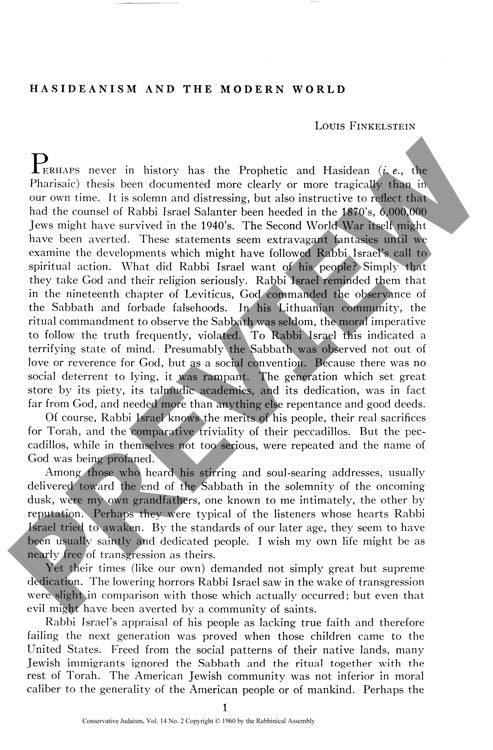Hasideanism and the Modern World
Couldn't load pickup availability
Abstract This study examines the relevance of Hasidean principles to contemporary global challenges through historical analysis and theological reflection. The methodology employs comparative historical examination of Rabbi Israel Salanter's 19th-century teachings and their potential application to modern crises, particularly analyzing the spiritual and moral factors contributing to World War II and contemporary international conflicts. The research demonstrates that the failure to heed Hasidean calls for spiritual renewal in the 1870s contributed to the moral vacuum that enabled Hitler's rise and the Holocaust. The analysis reveals how American Jewry's departure from traditional spiritual commitments weakened their capacity for effective resistance to emerging totalitarianism. The study identifies a fundamental confusion in modern democratic societies between prophetic ideals rooted in Scripture and pagan concepts emphasizing material prosperity. Key findings indicate that contemporary America's drift toward materialism and moral confusion parallels the spiritual complacency that preceded earlier catastrophes. The research concludes that only through profound repentance, rigorous adherence to moral law, and commitment to spiritual transformation can Jewish communities fulfill their prophetic role in guiding humanity toward peace. The study argues that such spiritual renewal, beginning with Sabbath observance and comprehensive Torah study, could catalyze broader moral transformation in American society and prevent future global conflicts. The implications suggest that without this Hasidean renaissance, civilization faces continued moral decay and potential destruction through emerging international threats and nuclear proliferation.

More Information
-
Physical Description
-
Publication Information
Published 1960
ISBN
-
Publication Credits
Louis Finkelstein

